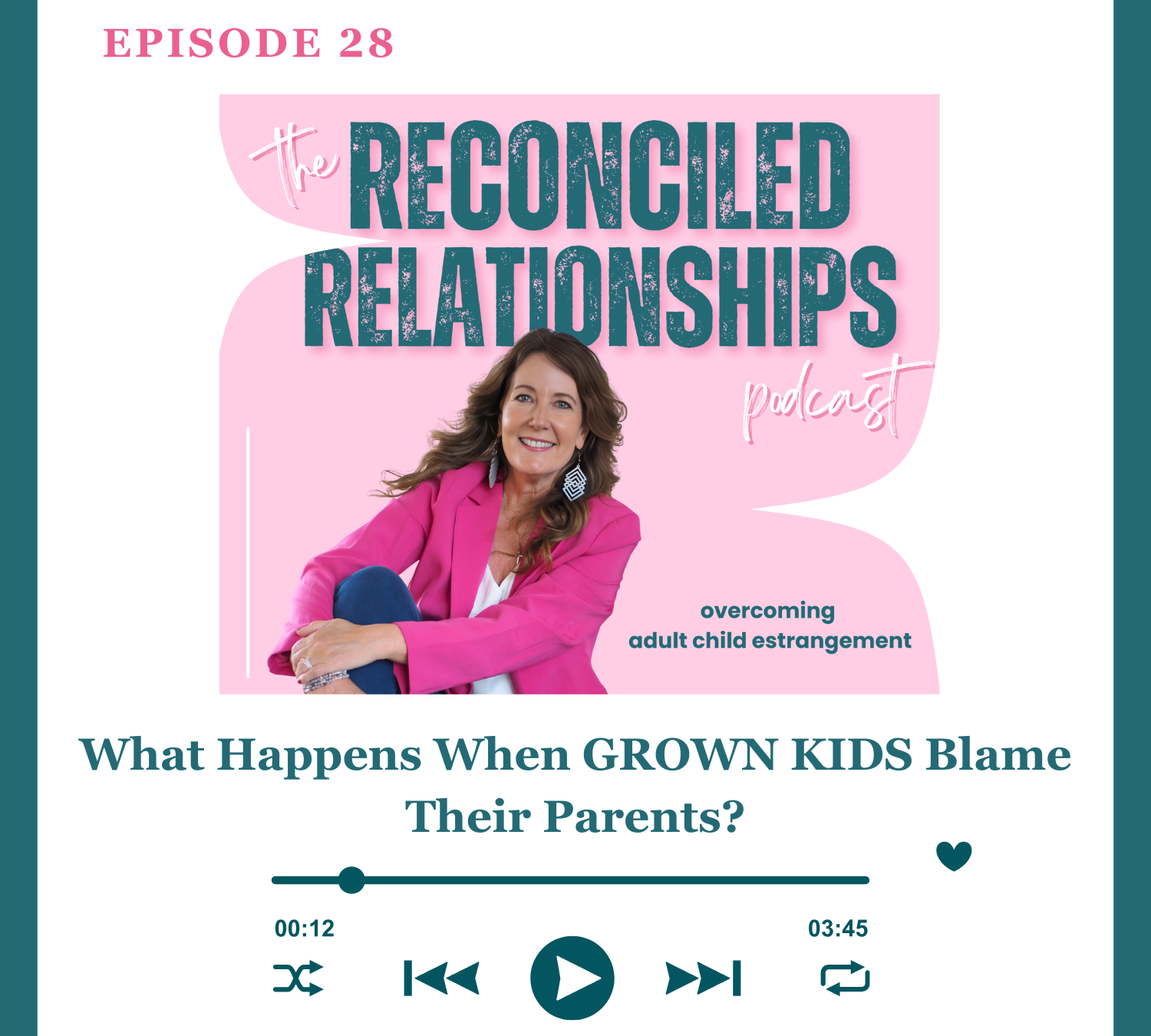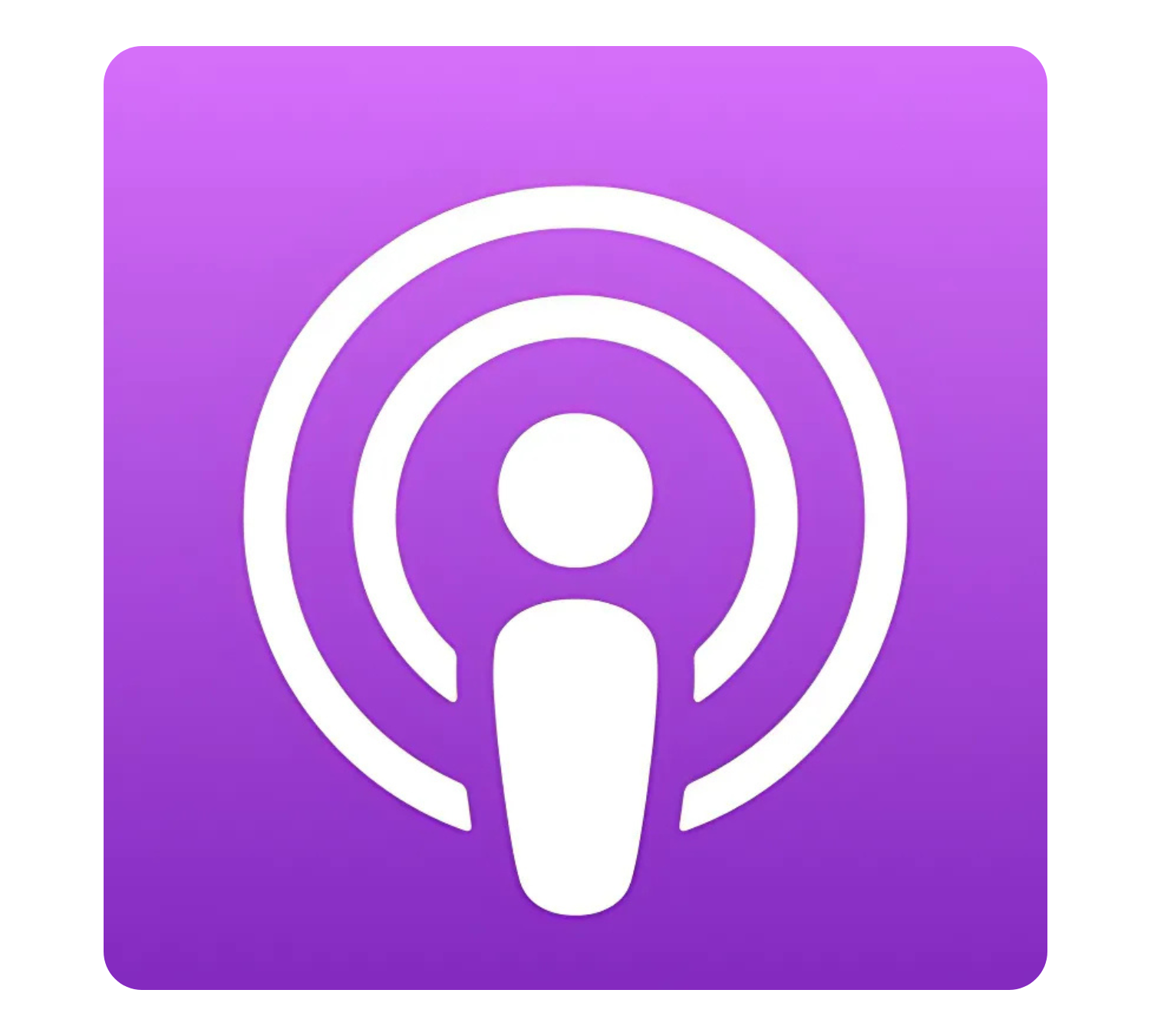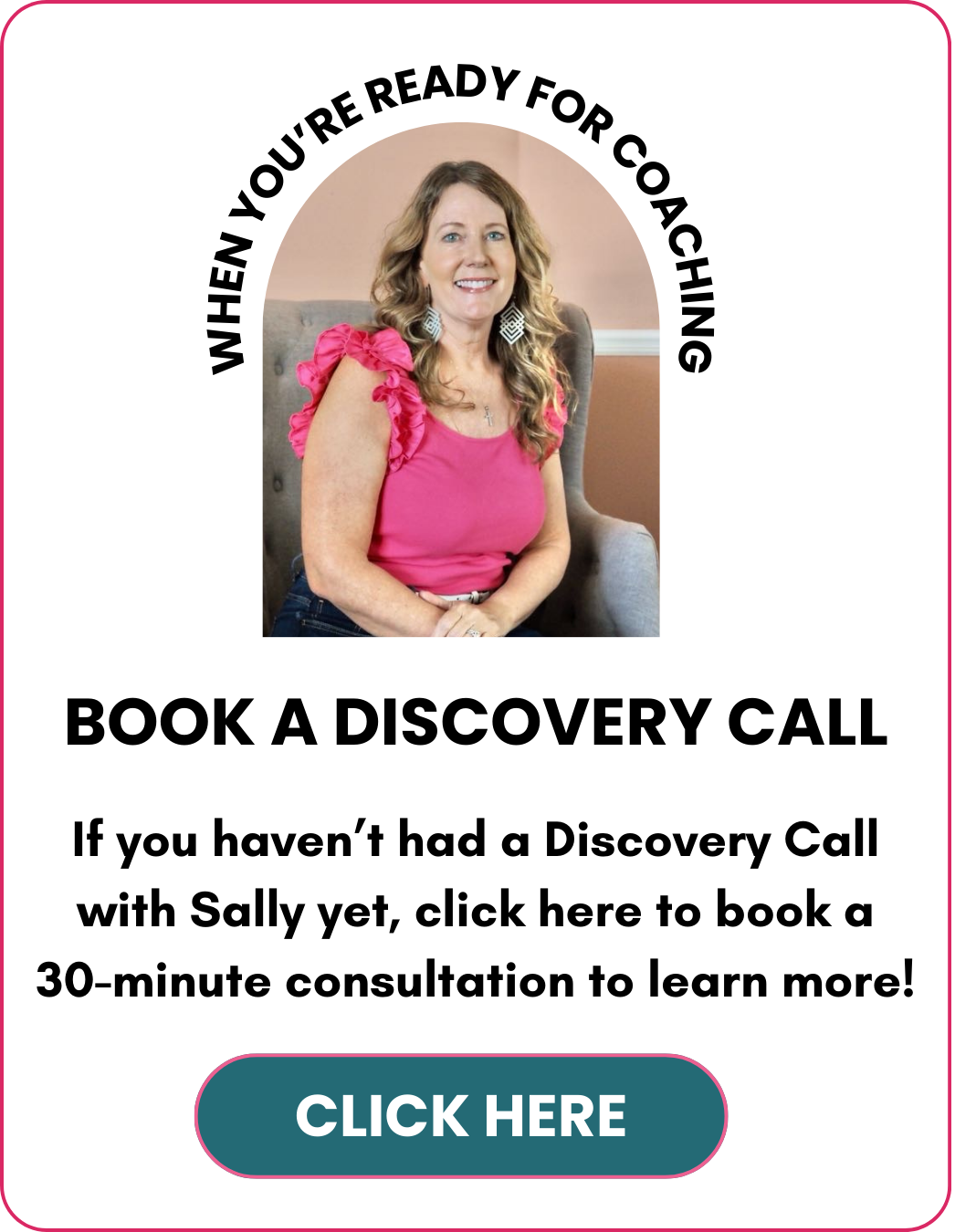WATCH THE EPISODE BELOW
LISTEN TO THE EPISODE BELOW
Have you ever been blamed for something you know deep down wasn’t your fault? When your adult child misplaces blame, the emotional weight can be unbearable. You wonder what you did wrong, even when your heart tells you otherwise.
In this heartfelt episode, we walk through four vital steps to protect your peace. First, we uncover why your child might be blaming you—it’s often more about their own unhealed emotions than anything you’ve done. Then we dive into how to manage your own emotional response so you don’t get pulled into conflict. You’ll learn how to stand in empathy while still honoring your truth, and most importantly, how to let go of guilt that was never yours to begin with. With honesty and compassion, this episode helps you find emotional footing again.
You are not alone. And you are not to blame for everything. Healing begins when you stop carrying what was never yours. Whether you’re estranged or just navigating hard conversations, you deserve peace. If you're ready for support, book a Discovery Call now. You matter too.
KEYPOINTS FROM THIS EPISODE
-
Blame often reflects their inner emotional struggle – It’s not always about you. It’s about what they haven’t healed in themselves.
-
Managing your emotional response is essential – Take a pause. Don’t react emotionally or defensively.
-
Empathy doesn’t mean absorbing blame – You can acknowledge feelings without agreeing to false accusations.
-
Letting go of unfair guilt is self-compassion – You’re not responsible for your adult child’s actions.
QUOTABLE MOMENTS
-
“Blame is often more about their emotional journey than your parenting.”
-
“You’re not responsible for your child’s actions as an adult.”
-
“Empathy does not mean absorbing blame—it means listening with compassion while standing firm in your truth.”
-
“Ask yourself: Is this really mine to carry?”
TRANSCRIPT OF THIS EPISODE
[00:00:00] Have you ever been blamed for something you know is not your fault? Your adult child makes a mistake, but somehow you're the one carrying the blame. It hurts. It's unfair. And I know it leaves you wondering, what did I do wrong? So you automatically assume it's something that you did. And we hold on to that.
But what if the blame that they place on you is more about them than it is about you? And sometimes that's the case. Not always. But today I want to talk to you about how to protect your heart and take back your peace. So, let's dive into four reasons why this could be.
Number one is I want you to understand why they're blaming you. blame often stems from unresolved emotions, right? There's a common theme here. And so whether it's an unresolved emotion of shame, frustration, or maybe disappointment, when your adult child feels overwhelmed, it's easier to point the finger at someone else, especially a parent, a [00:01:00] mom in this case, right?
Than to face their own mistakes. they go into victim mode and would rather blame everybody else than look in the mirror, right? We all make mistakes. I want you to see their blame as a reflection of their emotional struggle, not your parenting.
And in most cases, the moms that I work with. and so I want you to ask yourself feeling right now that's leading to this reaction, right? There's so much more going on either in here or in here or both that is causing this Like I said, the blame is more usually about their internal journey than your actions Number two is I want you to think about emotional responses Managing your emotional response is so crucial here Because it's painful to hear your child say something hurtful to you, and it's natural to feel defensive, maybe even get angry, feel guilty.
But when we react emotionally, It will only escalate the situation whether this is something [00:02:00] that you did do wrong or you didn't, manage your emotional response. So just give it a moment, take pause before you respond. You know, taking that deep breath, whatever you need to do and remind yourself that you're not responsible for their emotions.
You might be responsible for what they're upset about, but you're not responsible for their emotions. this is where talking to someone that you trust, can help you process these feelings, because you cannot continue to carry these in silence. And that's what a lot of moms do. That's what I did for a long time.
And once I started opening up and sharing, you know, sometimes over sharing with the wrong people, but at the end of the day, you have to protect your peace. that starts with managing your emotions first. It's really easy to want to fix everybody else and manage everybody else's stuff. But we, need to look in the mirror and manage our own emotions first.
So, if you are ready, as a mom, to take that next step towards taking care of yourself [00:03:00] during this difficult time. If you find yourself estranged from your adult child, or maybe you're just navigating, a really hard time with them. But if you're looking for a lifeline and you're committed to finding peace and support, then I want to explore how I can help you.
I have a Discovery Call link, which should be listed below. It's an opportunity for us to focus on your needs, your journey And to see if we are the right fit for coaching. spots are limited. So please only sign up when you're serious about prioritizing your wellbeing. if that's you, click the link to schedule your call.
Number three is empathy and boundaries. such a common theme that we talk about all the time, but it's true. It applies almost in everything, but this is how we have to respond. blame, if you're being blamed for something, again, whether accurate or not. does not need to be met with anger or acceptance.
It can be met with empathy, acknowledging their feelings without agreeing to the accusations. How many of us have [00:04:00] been in that situation? Maybe it wasn't always with your child. Maybe it's with someone else in your world, Every human being has dealt with this and all you'd have to say to your son or daughter would be, I can see you're upset and I'm here to listen to you.
It doesn't give them a license to degrade you or go down this long path about it. But if they're upset about something, take the time and really listen. I love you, but I don't think that's a fair assessment of what happened, you know? But if their words do become hurtful, you also can remove yourself. You can say, you know what?
I'm not comfortable being spoken to like this. Let's talk again when we're both calmer. And then you just end the conversation and you pick it back up. So empathy does not mean absorbing blame. Like I said, it's about being compassionate to them, to your child whom you love, Being compassionate while also standing firm for yourself because you need to remember that you deserve to be retreated with respect as well.
And number four is [00:05:00] letting go of unfair guilt. You know, there's a difference between taking responsibility for past mistakes, which we've all made, right? And carrying guilt for someone else's choices. You are not responsible for their actions as an adult. Let me say that again. You are not responsible for your child's actions as an adult.
that is something that I dealt with for a really long time and I thought it must have been my parenting. It must have been something I did wrong. But you know what? I'm not responsible for my child's actions. I'm not responsible for my husband's actions, I'm not responsible for your actions and you're not responsible for mine.
I want you to ask yourself when you are starting to carry this guilt and really struggling with this. I want you to write down, and start journaling. And I want you to ask yourself this question, is this really mind to carry, or is this a reflection of their own personal struggle? the second part of that question, you may [00:06:00] feel like you're not sure, right?
when you start to see a pattern here, it's a reflection of their own personal struggle. You may not know what that struggle is, but the main question here, is this really mine to carry? And the answer is usually no. So. You know what, if there's a grain of truth in whatever they're saying, acknowledge it,
I see how my actions in the past may have impacted you. Maybe you were, uh, drinking. Maybe you had struggled and you divorced their father or something like that. You can say, I can see, and I can accept how my actions in the past impacted you. And I'm sorry for that, but you can't accept the guilt for things beyond your control.
So, letting go of this guilt is an act of self compassion for you as a mom, and it frees you to focus on your own healing, which is why we're here. I hope this helps, and I will see you in the next episode. God bless.



